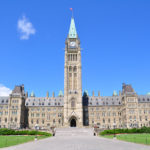Canadian unions say TPP needs thorough public debate
The statement below was adopted by the Canadian Council of the CLC at its meeting on November 9.
On October 5th, the governments of twelve countries of the Pacific region announced that they had reached a historic trade agreement.
Unfortunately for Canadians, there was little to cheer about.
The Trans-Pacific Partnership (TPP) Agreement was negotiated behind closed doors, with no input from civil society in Canada, and was concluded under a caretaker government.
We know that the proposed Agreement will have definite impacts on jobs in Canada, notably through lower content requirements for automotive imports, and the TPP’s concessions allowing for greater imports in the supply-managed agricultural sectors.
It is apprehended that this agreement will also have a serious impact on the capacity of all levels of government to regulate and provide services in the public interest. There are notably concerns over the investor-state provisions, the extension of pharmaceutical patent protection and other monopoly intellectual property rights, as well as whether the agreement contains meaningful provisions to protect workers’ rights.
In view of these likely impacts and the fact that Canadians are only discovering now the actual language of this agreement, the CLC calls on the Canadian government:
- To provide a serious economic assessment of the impact on jobs, particularly but not exclusively in the automobile industry and in the supply-managed agricultural sectors;
- To examine the likely effects of the TPP on the regulatory capacity of government, notably with respect to the provision of public services; and
- To create the conditions for an open and inclusive public debate, notably through public consultation and a parliamentary commission.
The CLC will work with affiliates, federations of labour, labour councils and other allies to better educate the public about the TPP and other proposed trade agreements such as the Comprehensive Economic and Trade Agreement (CETA), as well as engage in a targeted lobbying campaign with the members of new Parliament.






